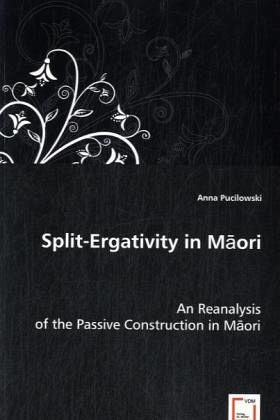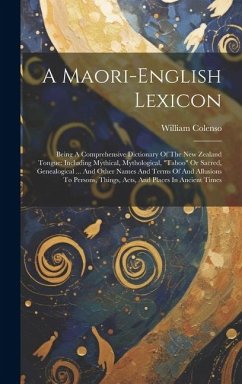
Split-Ergativity in Maori
An Reanalysis of the Passive Construction in Maori
Versandkostenfrei!
Versandfertig in 6-10 Tagen
39,99 €
inkl. MwSt.

PAYBACK Punkte
20 °P sammeln!
The so-called passive in Maori has been the topic of a long-standing debate in the linguistics literature. Its frequency, especially in past tense narratives, makes this construction an atypical passive. This book examines previous treatments of the problem and then suggests that, rather than an atypical passive construction, it is ergative, so that Maori has split-ergativity. It also looks at Maori from a diachronic perspective, and shows that it differs from its Eastern Polynesian sisters, which are all accusative. Maori is different because the extension of the imperfective pattern did not ...
The so-called passive in Maori has been the topic of a long-standing debate in the linguistics literature. Its frequency, especially in past tense narratives, makes this construction an atypical passive. This book examines previous treatments of the problem and then suggests that, rather than an atypical passive construction, it is ergative, so that Maori has split-ergativity. It also looks at Maori from a diachronic perspective, and shows that it differs from its Eastern Polynesian sisters, which are all accusative. Maori is different because the extension of the imperfective pattern did not spread to all transitive clauses, thus preventing a reanalysis of imperfective clauses as active.This book is intended for linguists interested in Maori and Polynesian languages and linguistics, as well as typologists with an interest in ergativity and split-alignment systems.












